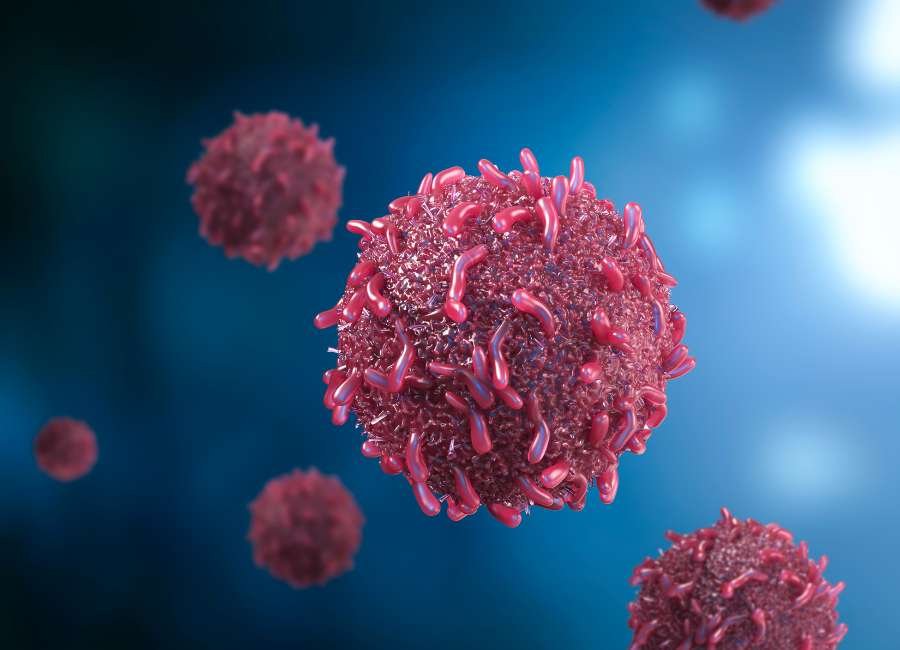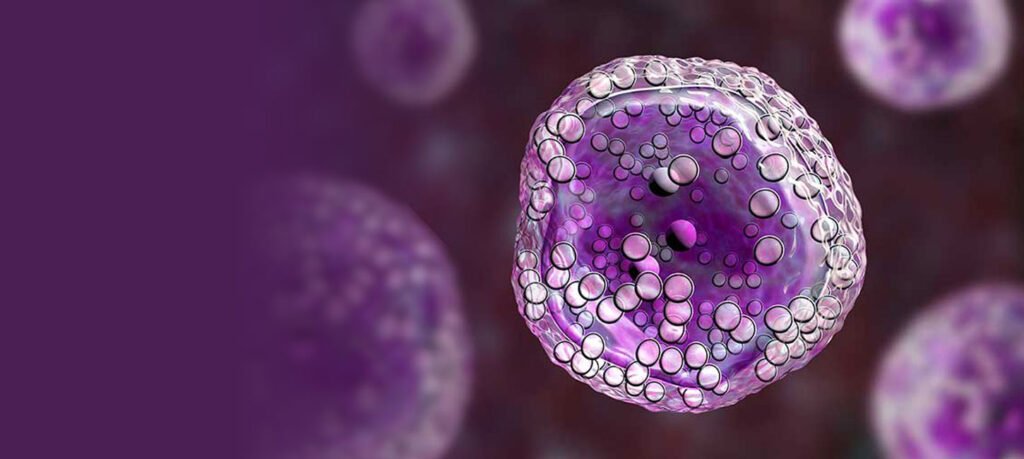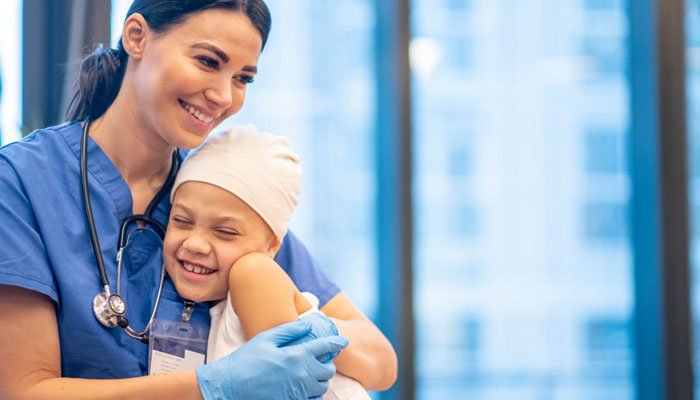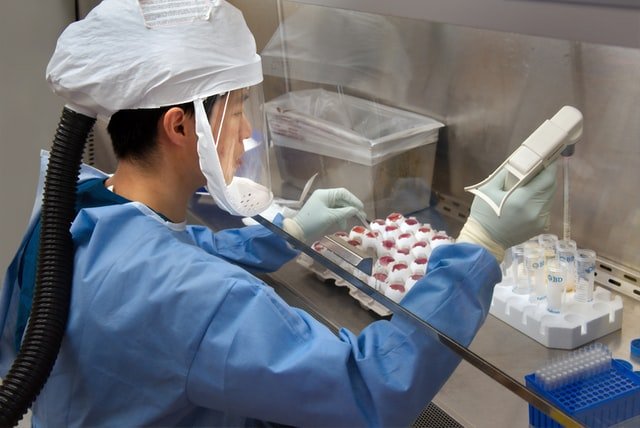Oncology
- Organization
- Partner With Us
News Release
Cancer
Cancer refers to any one of a large number of diseases characterized by the development of abnormal cells that divide uncontrollably and have the ability to infiltrate and destroy normal body tissue.

Cancer, a leading cause of global morbidity and mortality, involves the uncontrolled growth of abnormal cells. It manifests in over 100 types, each with unique characteristics and treatments.

10 Facts about Cancer //////////////
Early Detection of Cancer can save your life
01
02
03
04
05
06
07
08
09
10
//////////// FAQs

Cancer is a disease in which some of the body’s cells grow uncontrollably and spread to other parts of the body.
Cancer can start almost anywhere in the human body, which is made up of trillions of cells. Normally, human cells grow and multiply (through a process called cell division) to form new cells as the body needs them. When cells grow old or become damaged, they die, and new cells take their place.
According to the report of WHO, the most common in 2020 (in terms of new cases of cancer) were:
- breast (2.26 million cases)
- lung (2.21 million cases)
- colon and rectum (1.93 million cases)
- prostate (1.41 million cases)
- skin (non-melanoma) (1.20 million cases)
- stomach (1.09 million cases)
Cancers are Commonly named –
- Carcinoma
- Lymphoma & Leukemia
- Sarcoma
- Germ Cell tumor
- Blastoma
As a suffix , with the Latin or Greek Word –the organ –the tissue of Origin as the root.
Carcinoma—Derived from Epithelial Cells –developing in the breast , prostate , lungs ,pancreas, and colon are Carcinomas.
Sarcoma—arising from connective tissue bone , cartilage, fat, nerve,
Lymphoma & Leukemia—Cancer arise from immune System
Germ Cell Tumor –most often presenting in the testicle or the Ovary.
Blastoma—Cancers derived from embryonic tissue more common in Children than in older & adults.
- Cancer cells grow in the absence of signals telling them to grow. Normal cell only grow when they receive such signals.
- Cancer cells invade into nearby areas and spread to other areas of the body, normal cells stop growing when they encounter other cells and most normal cells do not move around the body.
- Cancer cells hide from the immune system, The normal immune system normally eliminates damaged or abnormal cells.
- Accumulate multiple changes in their chromosomes, such as duplications and deletions of chromosome parts, some cancer cells have double the number of chromosomes.
Most common risk factors for Cancer include a. Aging-over 65 have the generation of developing cancer.
- Tobacco sun exposure d. Radiation exposure e. Chemicals
And other substances , some viruses and bacteria f. Certain hormones family history of cancer alcohol , poor diet ,lack of physical activity or being overweight .
Cancer is Caused by certain genes changes & basic physical units of inheritance. Damage to DNA caused by harmful substances in the environment ,such as the chemicals in tobacco smoke and ultraviolet rays from the sun.
Surviving Cancer is amazing , but thriving with Cancer is even better –there are no cures for any kind of cancer ,but there are treatments that may cure you . Many people are treated for cancer live out the rest of their life and die of other causes. Many others are treated for cancer and still die from it, although treatment may give them more time-even years or decades.
- Most Chronic Cancers can not be cured but some can be controlled for months or even years.
- 56% or a little more than half of people diagnosed with early-stage lung cancer live for at least 5 years after diagnosis. The 5 year survival rate for people diagnosed with last-stage lung cancer that has spread (metastasized) to other areas of the body 5%.
Cancer Patient can go back to Normal –having been seeing Cancer Care
Team quite often—suddenly cancer people don’t have to visit for many months at a time. When treatment is done, some people feel like they are no longer fighting the cancer, worries can set in . People might feel alone and lost without support of cancer care team. These people may have become an important part of their life , not seeing them might .
Recommendations for Cancer Currently include reducing tobacco use increasing physical activity, Controlling Weight, improving diet, Limiting alcohol, utilizing safe sex practices, getting routine Cancer screening tests, and avoiding excess sun exposure .
- Prevent and Eliminate infection with Cancer-Causing Pathogens.
- Eat high fibers diet
- Avoid unnecessary radiation
- Avoid air pollution
- Be more Active
- Be Cognizant of Reproductive and Hormonal Influences.
- Limited Exposure to Environmental Carcinogens for example-radon, radioactive, gas that comes from the breakdown of Uranium in Soil, rock , and water is the leading cause of lung Cancer.
Ensure your Children get Hepatitis B and HPV Vaccines.
Signs and Symptoms of Cancer depend on Where the Cancer depend on where the cancer is , how big it is and how much it affects near by organs or tissues. If a cancer has spread (metastasized)signs or symptoms may appear in different parts of the body.
- Fatigue or extreme tiredness that does not get better with rest.
- Weight loss or gain of 10 pounds or more for no known reason.
- Eating problems such as not feeling.
A Cancer can grow into or begin to push on nearby organs ,- blood vessels and nerves –a cancer cause symptoms like a. fever b. tiredness (fatigue) c. weight loss-cancer can also cause the immune system to react in ways that produce signs and symptoms- d. In case of inflammation or cancer the lymph nodes can get larger e. Near the body ’s surface can get big enough to feel with fingers f. Some can even be seen as swelling or a lump under the skin.
- Skin changes such as a lump that bleeds or turns scaly, a new mole or a change in a mole, a sore that does not heal, or a yellowish color to the skin or eyes (jaundice).
- Cough or hoarseness that does not go away
- Unusual bleeding or bruising for no known reason
- Change in bowel habits, such as constipation or diarrhea, that doesn’t go away or a change in how your stools look
- Bladder changes such as pain when passing urine, blood in the urine or needing to pass urine more or less often
- Fever or nights sweats
- Headaches
- Vision or hearing problems
- Mouth changes such as sores, bleeding, pain, or numbness
- Fatigue. If you’re tired all the time and rest doesn’t help, tell your doctor. Leukemia often wears you out, or you could have blood loss from colon or stomach cancer. Cancer-related weight loss can leave you exhausted, too.
- Fever. If it’s high or lasts more than 3 days, call your doctor. Some blood cancers, like lymphoma, cause a fever for days or even weeks.
- Changes in your skin. Have your doctor look at unusual or new moles, bumps, or marks on your body to be sure skin cancer isn’t lurking. Your skin can also provide clues to other kinds of cancers. If it’s darkened, looks yellow or red, itches, or sprouts more hair, or if you have an unexplained rash, it could be a sign of liver, ovarian, or kidney cancer or lymphoma.
- Sores that don’t heal. Spots that bleed and won’t go away are also signs of skin cancer. Oral cancer can start as sores in your mouth. If you smoke, chew tobacco, or drink a lot of alcohol, you’re at higher risk.
- Cough or hoarseness that doesn’t go away. A cough is one sign of lung cancer, and hoarseness may mean cancer of your voice box (larynx) or thyroid gland.
- Unusual bleeding. Cancer can make blood show up where it shouldn’t be. Blood in your poop is a symptom of colon or rectal cancer. And tumors along your urinary tract can cause blood in your urine.
- Anemia. This is when your body doesn’t have enough red blood cells, which are made in your bone marrow. Cancers like leukemia, lymphoma, and multiple myeloma can damage your marrow. Tumors that spread there from other places might crowd out regular red blood cells.






























